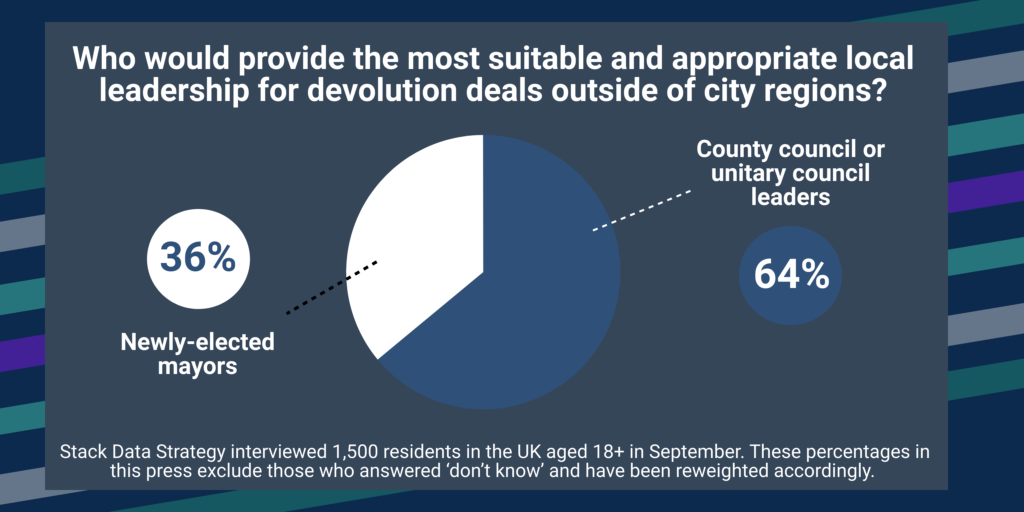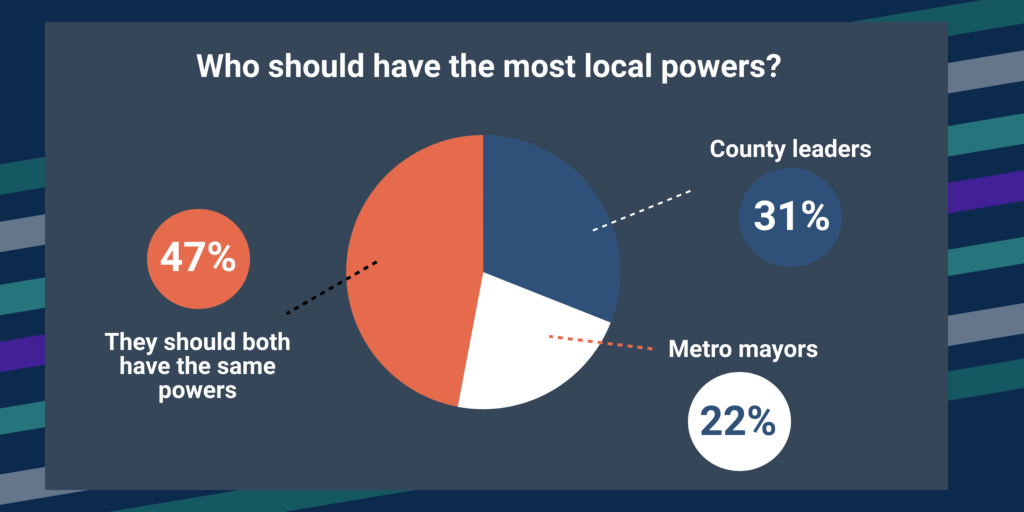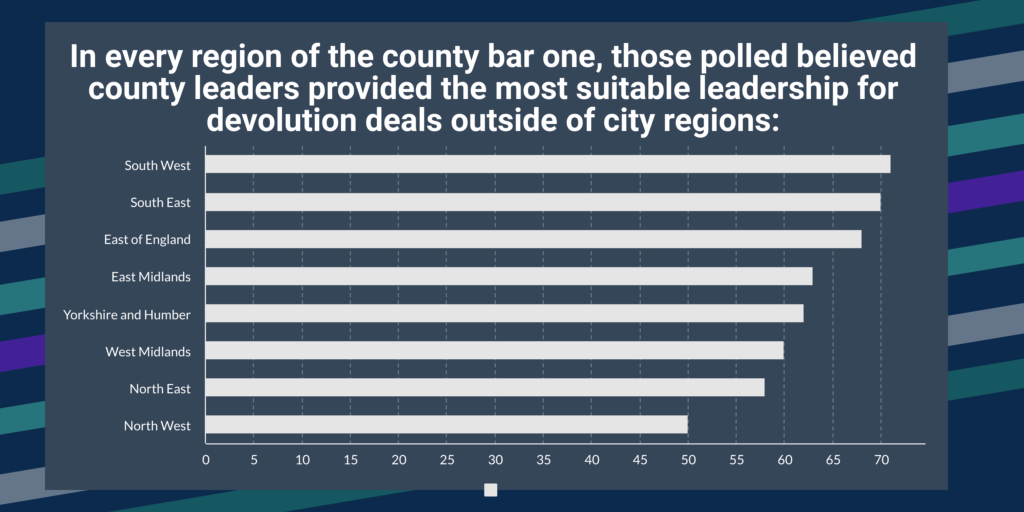
CCN Latest News, CCN News 2021 | 13 October 2021

Following the Prime Minister’s levelling-up speech this summer, where he promised to bring devolution to county areas in England, national polling shows that a clear majority of those who expressed a view – 64% – believe that existing county council and unitary council leaders offer the most suitable leadership for devolution in those places, rather than introducing an elected mayor, as agreed with the country’s biggest cities.

As the government begins negotiations over devolution deals for rural and county areas, the poll, commissioned by the County Councils Network (CCN), also reveals that over three quarters of people who expressed a view in the poll – 77% – said existing county council leaders should have equal or more powers than city mayors.

Just three county areas have a devolution deal presently. The requirement for a directly elected mayor was a prime reason why negotiations broke down outside of the cities in 2015-16, because of concerns over their suitability for large county and rural areas. In a separate survey carried out by the CCN of its member councils, just three county leaders out of 28 respondents – one in ten leaders – said they felt a directly elected mayor was suitable for their area.
The CCN argues that its polling results show that the government should not get ‘bogged down’ in protracted negotiations over introducing elected mayors and use the county council and county unitary leaders already in place to get deals secured quickly – and turbocharge devolution to England’s counties.
While the Prime Minister set out in July that there would be ‘no one-size fits all approach’ to devolution for county areas, the government has yet to confirm whether the introduction of a mayor is a condition of securing the most comprehensive devolution deals.
CCN says that a mayor should not be mandatory – and have called on the government to agree the first tranche of deals by the end of the year so local leaders have the funding and powers to lead economic recovery efforts and level-up their left-behind areas.
Devolving more powers to existing county council and unitary council leaders, rather than creating more elected mayors, is the preference for those polled in every region across England bar one. Amongst those who expressed a view, less than one in three believe that newly elected mayors are the most suitable leaders for county devolution in the South West (29%), South East (30%), and the East of England (32%).

With a Levelling-Up White Paper expected to outline what powers and devolved funding is to be available for local communities, of those who expressed a view said that councils should have increased powers in housing (71%), transport and infrastructure (68%), environment (65%) and adult education (65%) as part of any devolution deal.
 Cllr Tim Oliver, Chair of the County Councils Network, said:
Cllr Tim Oliver, Chair of the County Councils Network, said:
“The Prime Minister’s commitment earlier this year to empower our great counties through ambitious new devolution deals is a game changer for economic recovery and levelling-up.
“Whilst this government has not been as explicit as its predecessors on the requirement of a mayor to secure the most ambitious devolution deals, it has placed a great deal of value on strong local leadership.
“But as this polling shows, the public believe that existing county council and unitary council leaders already provide strong local leadership in county areas. We local leaders have long felt elected mayors were suitable for cities but not counties, and this is a view held by an overwhelming majority of the public.
“Rather than getting bogged down in protracted negotiations over introducing mayors, we want to work with government to turbocharge devolution to county areas. Time is of the essence and we need as many tools as possible to lead economic recovery from the pandemic, and to level-up our communities.”
Notes to editor
© 2024 County Councils Network | Credits | Site map | Cookies | Privacy Policy.